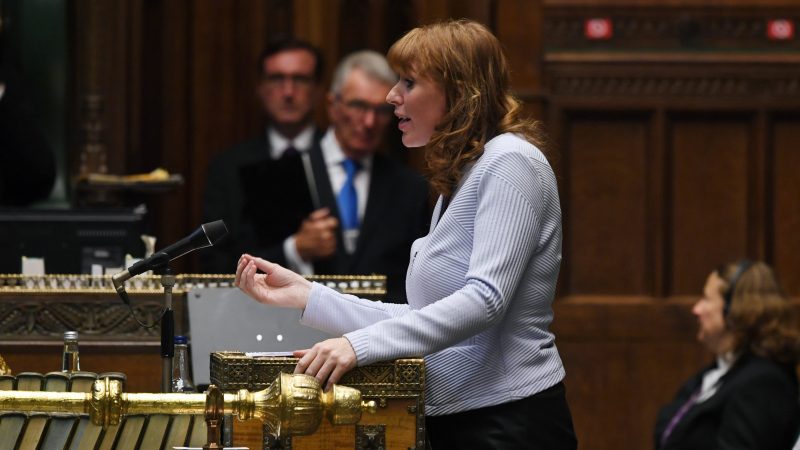
Angela Rayner has declared the current lobbying rules “completely unfit” for purpose and called on ministers to undertake a “radical and immediate overhaul” following the publication of a report into the Greensill scandal.
The review, launched earlier this year after it emerged David Cameron had lobbied ministers and officials on behalf of Lex Greensill, found that the businessman had been afforded an “extraordinarily privileged” relationship with the government.
The 141-page Boardman report stated that the government process for managing lobbying is insufficiently transparent and allows access to a “privileged few” but concluded that there is no need for a wholesale overhaul of transparency rules.
Greensill appeared to have been hired as an adviser by the then Prime Minister David Cameron and employed Cameron when he left office. Cameron then lobbied on behalf of Greensill and arranged access to cabinet officials and ministers.
The report said that Cameron “did not breach the current lobbying rules and his actions were not unlawful” but added that Cameron “could have been clearer about his relationship with Greensill Capital”.
Rayner said: “This report was set up as a classic Boris Johnson cover-up and whitewash to protect the government – a government non-executive director whose firm worked with the Treasury on corporate financing and had previously campaigned against lobbying reforms was appointed to lead a review, with the terms of reference specifically limited to avoid a wider investigation of lobbying, privileged access and the revolving door between Whitehall and business.”
Johnson launched the review, headed by Nigel Boardman, in April to look at the revolving door used by lobbyists, officials and politicians, in light of revelations that some had ‘double-jobbed’ as both Greensill employees and civil servants.
It had also been revealed that civil servant Bill Crothers joined Greensill while still working as the government’s chief procurement officer in an arrangement “agreed by the Cabinet Office under its internal conflicts-of-interest policy”.
The deputy Labour leader added: “The [Advisory Committee on Business Appointments] system and current rules regulating lobbying do more harm than good by giving a veil of legitimacy to the rampant cronyism, sleaze and dodgy lobbying that is polluting our democracy under the Tories.
“Labour will ban former ministers from lobbying government for at least five years after they leave office, and overhaul the current broken system and replace it with an integrity and ethics commission that will close the revolving door and stamp out sleaze.”
Report author Boardman wrote that Lord Heywood, the late cabinet secretary, was “primarily responsible” for Greensill being given a role but added that Cameron had “on occasion understated the nature of his relationship”.
He said the position provided Greensill with a “marketing platform for Greensill Capital’s business” that allowed the businessman to “promote a product which did not, in fact, provide material benefits to government (except possibly in relation to the pharmacy supply chain finance programme, although even here the benefits are disputed), although it could have been of benefit to his incipient business and was of immediate benefit to his former employer, Citibank”.
Financial company Greensill Capital, which collapsed in March this year, specialised in providing supply chain financing – a technique aimed at making it easier for businesses to receive payments.
Boardman wrote that Greensill’s appointment appears to have been “properly made”, but added public appointments are “opaque and ill-defined” and that the process should be “more clearly delineated” and “requires greater transparency”.




More from LabourList
‘Ukraine is Europe’s frontier – and Labour must stay resolute in its defence’
Vast majority of Labour members back defence spending boost and NATO membership – poll
‘Bold action, not piecemeal fixes, is the answer to Britain’s housing shortage’